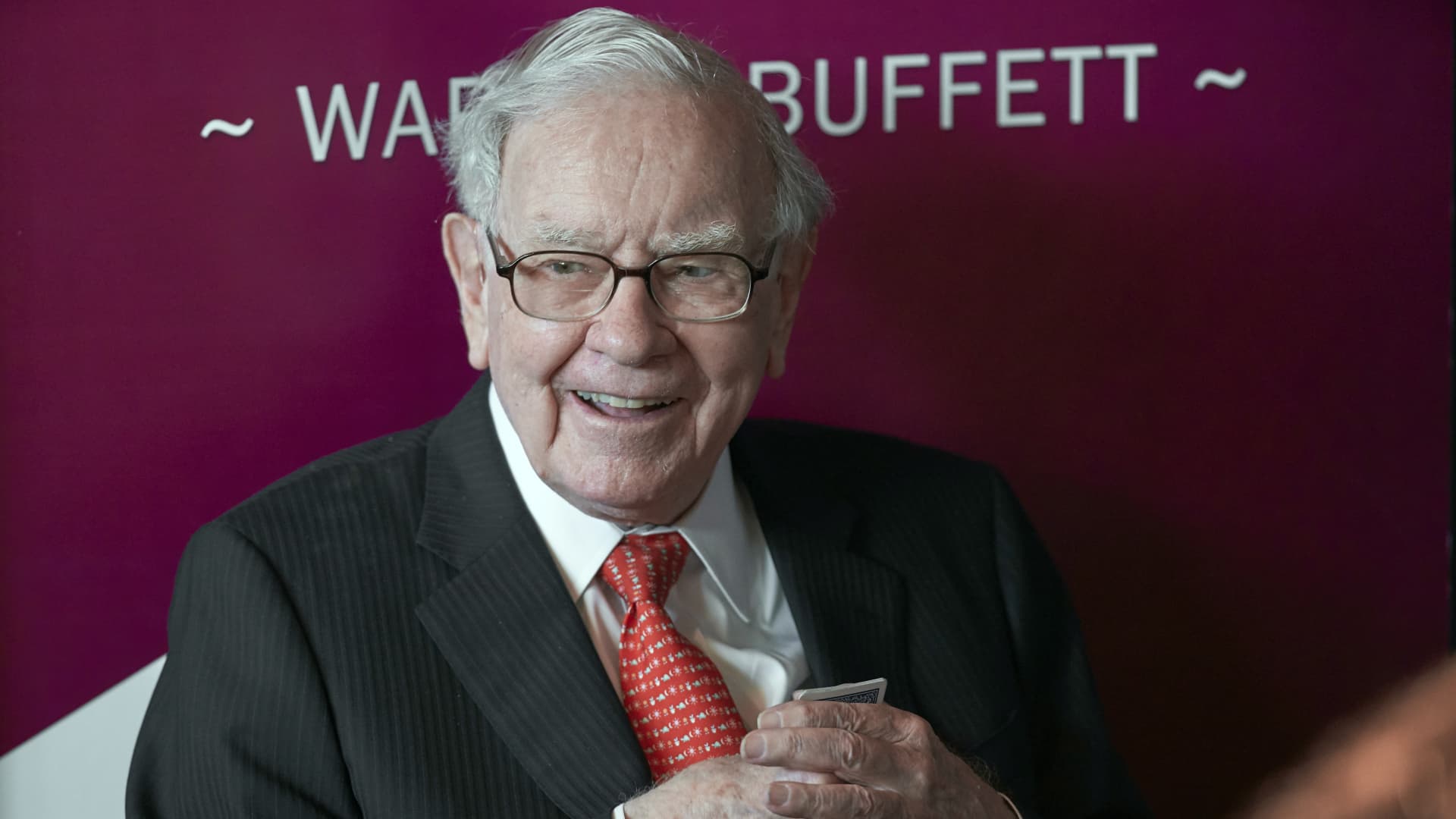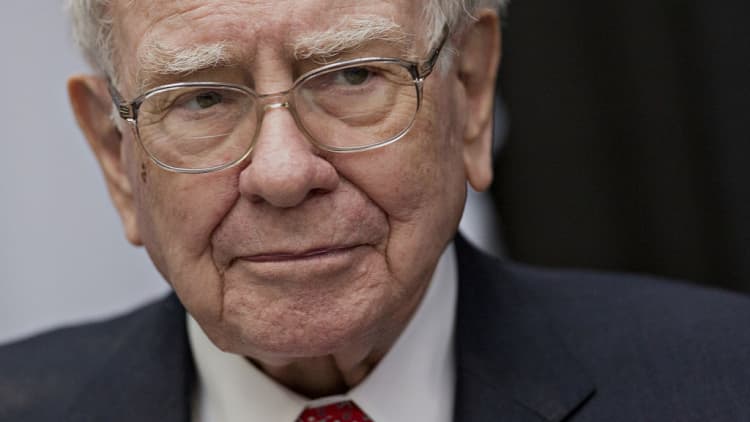
Warren Buffett, chairman and CEO of Berkshire Hathaway, smiles as he plays bridge following the annual Berkshire Hathaway shareholders meeting in Omaha, Nebraska, on May 5, 2019.
Nati Harnik | AP
Warren Buffett is widely praised for his investment acumen.
But one of the biggest factors to his success has nothing to do with picking the right companies.
“His skill is investing, but his secret is time,” Morgan Housel wrote in the bestselling business book, “The Psychology of Money.”
“That’s how compounding works,” Housel wrote.
To that point, 99% of Buffett’s net worth was accumulated after he was 65 years old, Housel said during a 2022 interview with CNBC.
“If Buffett retired at age 65, you would have never heard of him,” Housel said.
Today, Buffett’s total net worth is estimated at $132 billion.
That’s up substantially from the $84.5 billion net worth Buffett had at the time Housel’s book was published in 2020. Most of that wealth came in Buffett’s later years, Housel wrote, with $84.2 billion after he turned 50 and $81.5 billion after he turned 65.
Compound interest accumulates not only the on the initial amount invested, but also to the interest in previous periods.
Buffett has compared it to a snowball rolling down a hill. By the time it gets to the bottom, it is much larger.
“The trick is to have a very long hill, which means starting very young or living … to be very old,” Buffett said.
How to use compound interest to your advantage
Everyday investors can easily put the power of compound interest to work.
“Start early — as young as you can — and even if it’s just small amounts, just keep doing it,” said David Rea, president of Salem Investment Counselors in Winston-Salem, North Carolina.
Buffett himself got an early start, making his first stock purchase at age 11. But after selling the three shares of Cities Service, he saw the stock surge, which served as an early lesson that it’s hard to predict when to buy a stock and when to sell it.
More from Personal Finance:
Advice about 401(k) rollovers is poised for a big change. Here’s why
IRS free filing pilot processed more than 140,000 returns, commissioner says
Here’s why new home sales inch higher despite 7% mortgage rates
People tend to get excited when the market is going up, which prompts them to buy, noted Bradley Klontz, a certified financial planner and behavioral finance expert with Your Mental Wealth Advisors.
Then when markets drop, they tend to get scared and sell, which is the opposite of what they should be doing, said Klontz, who is also a member of the CNBC FA Council.
The S&P 500 has returned more than 10% per year on average over the past 100 years, Klontz noted. Yet investors who try to time the market won’t reap the full benefit of those gains if they’re moving in and out of their investments.
Individuals are not necessarily to blame; survival instincts will prompt you to follow the crowd.
“We’re wired to do it,” Klontz said.
Becoming a millionaire is ‘easy’ if you start early
We’re also wired to consume today rather than prioritize future gratification. To combat that, it helps to have a specific vision for why you’re investing — the freedom you hope to achieve, the car you want to drive and the emotional satisfaction that life will bring you, Klontz said.
When you clearly have that goal in mind, take action and set up automated movements of your money, say from your paycheck to your 401(k) plan, he recommended.
Like Buffett, individuals will also reap the most rewards if they start young.
“It’s actually pretty easy to become a millionaire if you’re starting early,” Klontz said.

But the longer you wait, the harder it is to catch up. For example, the $5 a day you would need to accumulate $1 million when you’re just starting out may turn into $500 a month at age 30, he said.
The good news is that an investment strategy does not need to be complicated. Buffett himself has recommended individuals keep it simple with a low-cost S&P 500 index fund.
“If you buy an S&P 500, index fund, week in and week out, you will compound to a large amount of money,” Rea said.
Investors can also take other cues from Buffett — don’t panic; buy American; and keep investing through good and bad, Rea said.
